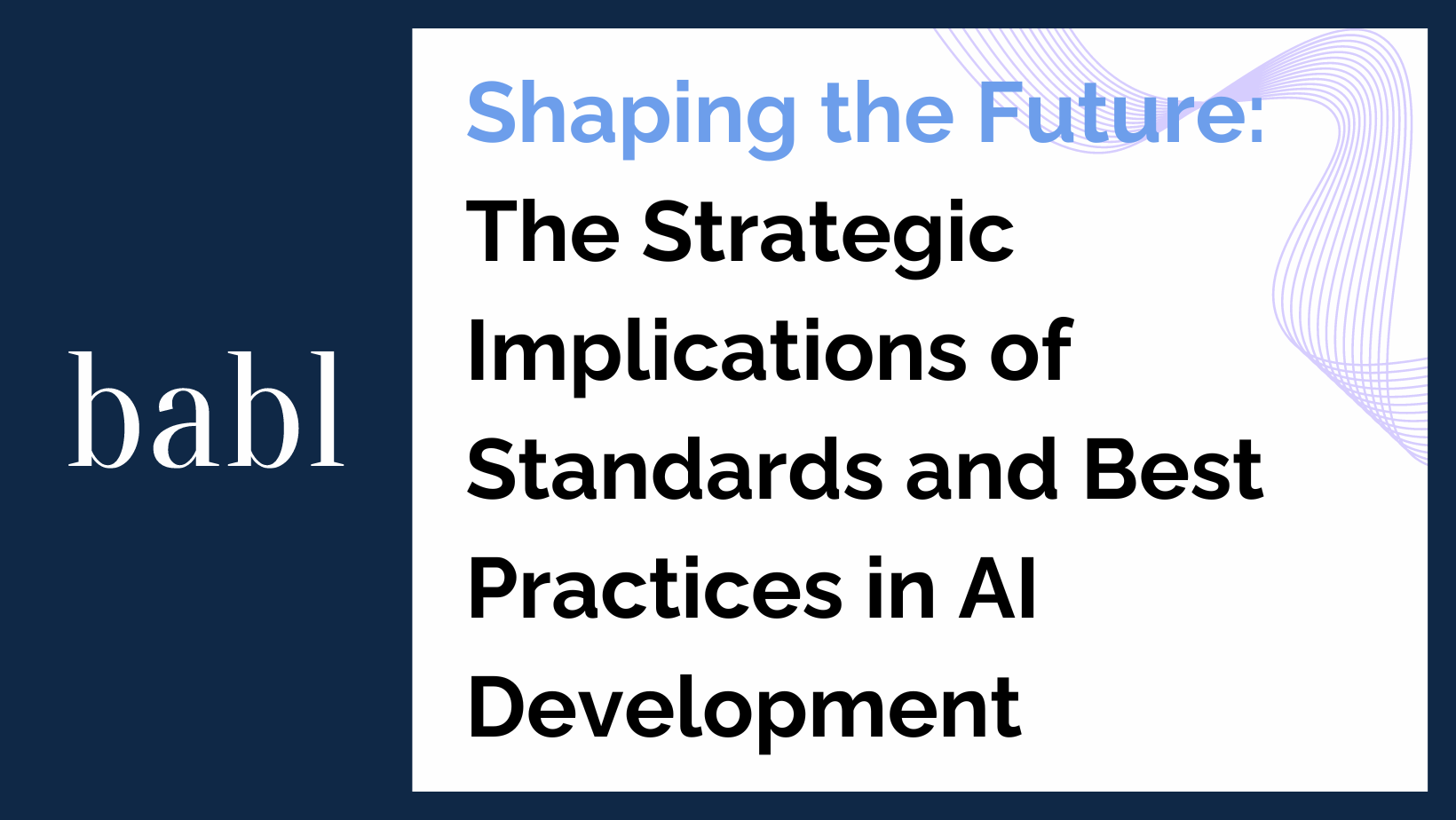Shaping the Future: The Strategic Implications of Standards and Best Practices in AI Development
As AI continues to transform industries globally, the establishment of robust standards and best practices is becoming increasingly crucial. These frameworks not only guide ethical development and deployment, but also shape the long-term landscape of the AI industry.
The Role of Standards in AI Development
Standards and best practices serve as fundamental building blocks for the responsible growth of the AI industry. They provide a blueprint for developers, users, and regulators, outlining essential criteria for safety, efficiency, and ethics in AI.
- Driving Consistency and Compatibility: One of the primary roles of AI standards is to ensure consistency and compatibility across different systems and sectors. Establishing protocols and benchmarks, standards allow for interoperability between various AI applications, enhancing the ability to integrate and scale solutions. This is crucial for sectors like healthcare and automotive, where multiple AI systems must interact seamlessly and safely.
- Fostering Innovation: While it may seem counterintuitive, well-designed standards actually promote innovation. By defining clear guidelines, standards provide a framework within which developers can innovate safely. This clarity reduces uncertainty and risk associated with AI projects, encouraging more investment and experimentation. Moreover, standards often set a high bar for quality and performance, pushing developers to create more advanced, competitive solutions.
- Enhancing Global Competitiveness: In a global market, standards play a critical role in leveling the playing field. They ensure that products developed in different parts of the world can compete fairly, based on the quality and safety of their AI technologies. For countries and companies, adhering to internationally recognized standards can be a significant competitive advantage, opening up access to global markets and supply chains.
Broader Implications for the AI Industry
The long-term strategic implications of AI standards and best practices extend far beyond technical and operational aspects, influencing the very trajectory of AI development.
- Regulatory Alignment: As AI technologies become more integral to critical infrastructures and everyday services, the need for regulatory frameworks increases. Standards and best practices help inform and shape these regulations, ensuring they are based on proven methodologies and real-world effectiveness. This alignment between standards and regulation is vital for maintaining safety without stifling innovation.
- Ethical Foundations: AI raises profound ethical questions, from privacy concerns to decision-making in critical scenarios. Standards that incorporate ethical considerations set a foundation for the development of AI technologies that respect human rights and societal norms. This ethical alignment is crucial for maintaining public trust and ensuring the social acceptability of AI solutions.
- Risk Management: As AI systems grow in complexity, the potential risks associated with their deployment escalate. Standards that include risk management protocols help organizations identify, assess, and mitigate potential threats, such as biases, failures, or security breaches. This proactive approach to risk management is essential for the sustainable development of safe AI technologies.
Conclusion
The establishment of robust standards and best practices is pivotal for the AI industry’s future. These frameworks not only guide the technical development of AI systems but also ensure that this development is aligned with broader societal values and regulatory requirements. As we look forward, the role of standards and best practices will only grow in importance, influencing everything from innovation and market competitiveness to ethical considerations and risk management. For stakeholders across the AI spectrum—from developers to policymakers—the strategic implementation of these standards will be key to harnessing the transformative potential of AI while safeguarding against its risks. By shaping the development of AI in such a comprehensive manner, standards and best practices not only protect but also propel the industry forward, ensuring its long-term success and relevance.
Need Help?
If you want to have a competitive edge, don’t hesitate to reach out to BABL AI. Their team of Audit Experts can provide valuable insights on implementing AI.





